Since the city fully reopened over the summer and vaccines became more widespread, Chicago’s live venues have jumped into action, rolling out new shows at breakneck speed. But are musicians, creatives, production staff and those in the industry mentally ready? And is it okay if they aren’t?
Content warning: This story discusses mental illness and has mentions of suicide and substance abuse. To connect with someone about substance abuse, SAMHSA’s national helpline, 1-800-662-HELP, is a 24/7 resource; to connect with someone about suicide or suicidal ideation, the National Suicide Prevention Hotline, 1-800-273-TALK, can provide support.
Musician Deon Stevenson, stage name Deon Alphanzo, who raps and does “a little bit of everything” (“except country,” he adds), noticed his mental health impacted in a way that he’d never encountered before: because of the pandemic, but more pressingly, because of his friends. As an indie musician who is friends with other indie musicians, Deon found his previously collaborative, open-minded and supportive friend group morph into something more toxic as opportunities for live performances shrank and stay-at-home orders settled into place.
“[Supporting artists] gets into the competitive nature of things, especially with rappers,” said Alfonzo, who’s active in rap, alt-rap and poetry circles on the South Side. ”As soon as one person feels like they’re getting better, that they’re it, people act differently, right? It shouldn’t be like that, but that’s how my experience within the music industry is – that, with COVID, essentially impacted my mental health.”
Alfonzo, like many artists and creatives, struggled with stay-at-home mandates in Chicago, which stretched long into the summer of 2020 – a prime time for outdoor venues and performances, and Chicago’s heralded festival season. To fill his time, Alfonzo took up professional development, like boosting his social media presence and branched out with content creation, venturing on photoshoots with other friends and clients at locations across the city.
It was good to have something to do, he said, but as COVID-19 hit a peak last year, guilt started to set in about his travels across the city, and worries about his health and the health of his family became more present, too. Alfonzo decided to quarantine for safety reasons, and poured his energy into recording, producing and honing his skills.
“With quarantine, it’s like… I can’t go play hoops, they took all the rims down. I can’t go to the gym. I can’t have a party – I couldn’t do shit. All my friends are music artists, and it came to a point where we really started causing tension, because everybody’s in quarantine,” he said. “Everybody’s in their own space, and when you’re in your own space, sometimes you start to realize, like, damn, I really like being alone. So then there were times when as soon as we got back to hanging out after two or three weeks of solitude, it was hard to come back as friends and not as musical artists sometimes. That contributed to a lot of burnout as well.”
Across the city in Pilsen, punk musician Mike Fruel, the lead singer for local alt-punk band Torch the Hive, struggled with not just the mental impact of the pandemic and lockdown, but a financial one, too. When he’s not touring or playing at local venues, Fruel is a bartender and server – and when COVID hit Chicago, he found himself in a tight spot.
“I worked in the restaurant industry at the time, and our hours were just absolutely cut down in size. I wasn’t making any money, eventually I was let go. Of course, the first thing I turned to was my creative side and making music, but I couldn’t even perform or play any shows, either,” Fruel said about the start of the pandemic. “We were actually getting ready to do a West Coast tour and hit Las Vegas down to L.A. – I had a couple of contacts and shows booked, playing various DIY spaces and professional venues as well, and just getting ready to write our next album. And it got sidelined.”
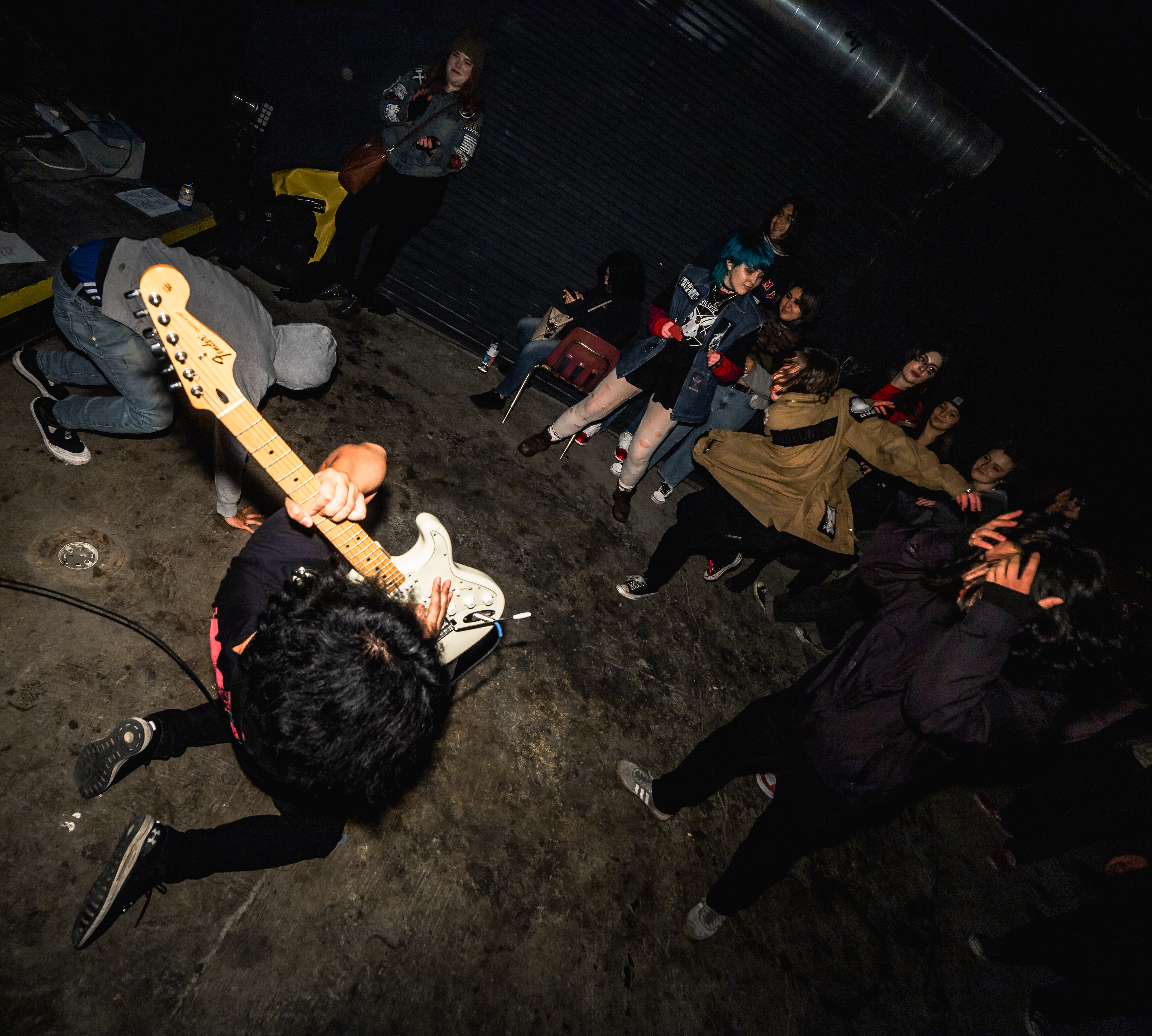
One of Fruel’s favorite venues to play is The Fall Out, a space run by Pilsen DIY, which puts musicians in a concrete DIY skatepark in the heart of Pilsen. Photo provided by Torch the Hive, photo by @sno.unknown on Instagram.
The loss of a West Coast tour, plus the added blow of losing a source of income and his ability to practice a creative outlet with his DIY-avid friends, meant that Fruel was in a bind unlike anything he’d experienced before – but a bind that he recognized he wasn’t alone in. With venues shut for the foreseeable future, Fruel and his bandmates worked to record and produce a full album, Flamingo, doing the only thing they could do safely at the time: write a lot of music.
“America last year was in a very weird, combative state, and it put me in the headspace to basically just self-medicate with anything I could do creatively,” Fruel said.
Flamingo, which is a “pretty political album,” touches on themes of Donald Trump’s presidential term, issues with police brutality, and the January 6th insurrection at the Capitol. “I ended up writing a whole album with my band … it was pretty much an amalgamation of what I was sick of seeing at the time. It helped me mentally and emotionally to just write about it.”
But the ability to adapt to different outlets or modalities wasn’t – and still isn’t – a reality for many in the entertainment industry in Chicago. For Chicago’s countless music venues and live performance spaces, there’s an entire production team, including management, food and alcohol vendors, janitorial staff and security, keeping the place afloat; for every show, there are riggers, sound engineers and lighting designers; for every tour, there are promoters, roadies, administrative staff and, not to mention, the musicians themselves.
Christmas Bacos, of Chicago-music-scene-born mental health organization Hope For The Day, knows this firsthand. “Life on the road is hard. It’s really, really hard.”
“With the past two years, especially if you work on the crew or the roadie end of things with production … you’ve seen your entire income just go away. A lot of people aren’t working for one of the top artists in the world. They don’t have that financial security, they may not be offered benefits,” she explains. “When things first started to open back up and tours started saying ‘We’re going to go, we’re gonna go, we’re gonna go,’ and then at the last minute go, ‘Oh, all tours canceled’? These people are seeing their lives be impacted in such a major, major way.”
Hope For The Day, which started in 2011 in Chicago, used festivals staged at large outdoor venues like the Hollywood Casino Amphitheater in Tinley Park to initially spread their message. Bacos says they at one point got permission from LiveNation to canvass at every event for three years. This past summer, the organization, including Bacos (third image, right), set up shop at the Pittsburgh-based Four Chords festival. / @hopefortheday on Instagram
After concert promoter Jonny Boucher lost multiple close friends and colleagues to suicide, including mentor and fellow promoter Michael Scanland in 2010, Boucher launched Hope For The Day with the intention to break down stigma within the music industry surrounding mental health and suicide. (It shouldn’t be overlooked, though, that Boucher was recently suspended and terminated from Hope For The Day for creating the type of environment the organization helps other organizations to avoid. According to his LinkedIn, Boucher hasn’t been involved in Hope For The Day since April.)
Hope For The Day has since spun out into one of the most prevalent mental health organizations on the Chicago music scene and in the larger entertainment industry. What went from a lone black tent at alt-rock festivals like Vans Warped Tour and Riot Fest with volunteers doling out rubber wristbands and cards emblazoned with “IT’S OK NOT TO BE OK” is now an organization seeking to tackle the root cause of stress for creatives and production crew lie: the workplace.
For musicians and crew, the pressure to create, produce, release and perform music can be immense. Paired with financial instability due to COVID-19 in an industry where opportunities are largely gig-based, mental health issues, issues coping with stress and sudden adjustments, insomnia, substance use disorders and burnout are so common in the industry.
“That pressure to perform from a creative standpoint – feeling that pressure that you always need to be on, always need to be creating, and sometimes the reasons why you began creating in the first place can get kind of lost in the sauce, when you initially started out just creating things for yourself as an outlet to make yourself happy,” Bacos said. “And then there are some artists that do support a whole crew of people, even when they’re not touring. I’m sure they feel the pressure of people that depend on [them] to feed their families, pay their mortgages … it’s just the pressure coming in from all angles.”
Before getting involved with Hope For The Day, first as a volunteer, then as a board member and now as the organization’s senior HR director Bacos was an independent concert promoter in Pittsburgh, frequently making the trip between Chicago, Pittsburgh, New York and to venues in between. She’d trade shows (a technique promoters use among each other to ensure business for touring bands – and themselves) between cities.
“The people who make the show happen are in a really precarious situation where they work so, so hard – but if the show doesn’t happen, they don’t make the money,” she said. “Being on the road itself can have a huge impact on your mental health … you can’t have an off day, because if you miss a safety check or a light isn’t rigged properly, it could cost someone their life. The pressure and stress is through the roof: the stress to put on your game face and just go out there and do the damn thing is there all the time.”
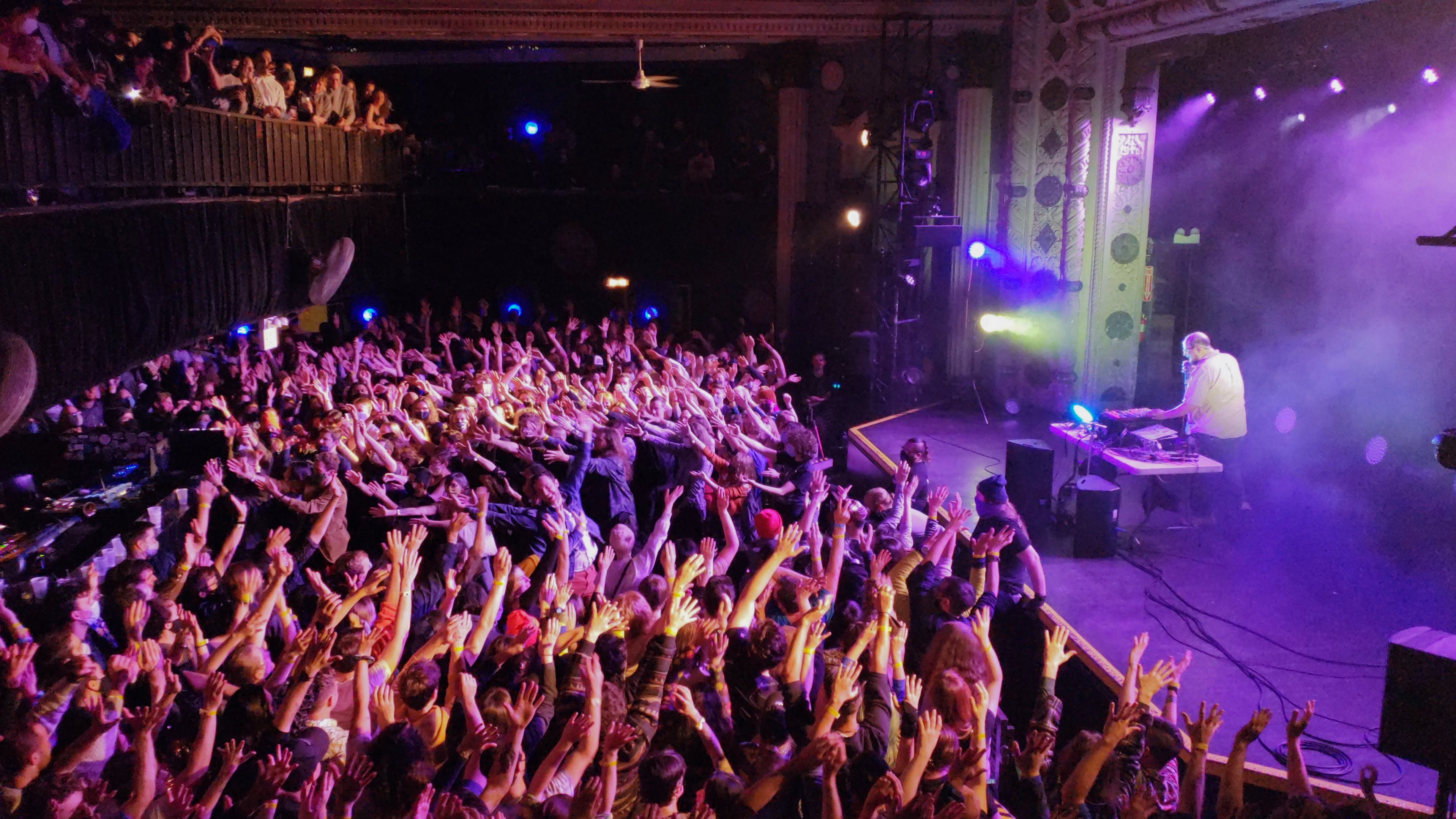
Baltimore-based electronic musician Dan Deacon addresses mental health, trauma and stress directly in his shows. Deacon’s “Mystic Familiar” tour, which stopped at the Metro on Nov. 13, guided concertgoers through a meditation and reflection on grief – asking people to close their eyes, think of someone they dearly missed, then collectively scream at the top of their lungs before launching into an audience-led “interpretive group dance” to “dance out the feelings.” Photo by Cam Rodriguez, 14 East.
To alleviate some of that pressure, city and community organizations alike worked to help people in the industry financially, not just socially and emotionally. Because of the drastic economic toll on the industry – globally, the live events industry lost more than $30 billion in revenue – the status of someone’s mental health is near-inseparable with their careers.
For those owning and operating venues, not just performing in them, burnout as the city reopens is just as real. CIVL, the Chicago Independent Venue League, realized this even before the pandemic hit, most notably providing support to The Hideout in the face of Lincoln Yards’ development – though once COVID rolled through Chicago, stress mounted even higher. Last year, the majority of venue owners didn’t think they’d make it: an industry-wide survey from NIVA, the National Independent Venue Association, found that without federal funding, 90 percent of NIVA’s 3,000 members believed they’d have to close permanently.
Robert Gomez, the owner of iconic Chicago venues Subterranean and Beat Kitchen, and the co-chair of CIVL, was desperately looking for a way out financially as the pandemic stretched on: “Every day is filled with anxiety,” he told InsideHook last May. “It’s either a mad scramble to get something submitted for a grant or loan which will never come to fruition or a discussion on how to convince politicians that venues are in a unique and devastating position.”
DCASE, Chicago’s Department of Cultural Affairs and Special Events, were convinced from the start – and they jumped in to help financially, providing millions in grants and funding to artists and venue owners, coordinating livestreamed concerts and events, and working to anchor the city’s entertainment industry at-large. DCASE used city and state arts funding in tandem with federal CARES Act money from the National Endowment for the Arts, according to the Chicago Reader, to provide financial support to venue owners and staff, individual artists and musicians, and other live cultural events – and is still going, with $26 million planned for investments in arts, culture and creative workers in 2022.
After a successful first round of grants to venue staff, CIVL launched a second round focused on artists and creatives. CIVL SAVE’s first round ended up doling out $80,000 that was donated and generated from pop-up merchandise shops and benefit fundraisers to out-of-work venue employees; their second round aims to distribute even more to the community, with a deadline last week for funds that can go towards rent, groceries, bills, music expenses or just to get by.
“We’re really just trying to help people get back on their feet, especially around the holidays,” said Michael Mills, who works at CIVL and Hideout Chicago. “The survival of venues goes hand in hand with the success of artists and their ability to make a career out of performance – this is designed to put some extra money in their pocket and help them get through what has been an especially difficult time for artists.”
View this post on Instagram
Both Alfonzo and Fruel are hoping to ease back into live performances at a pace that won’t burn them out, and Bacos has been picking up shows here and there to support her friends – most recently promoting Hope For The Day at an event run by longtime friends in her hometown by passing out wristbands at the door.
“I get so emotional … I think about what it took to get to that spot and all the work that went into creating that space, from the venue, the crew, the artists, the amount of work the artist has done in their life,” she said. “I’m just so grateful and proud of everyone for doing the damn thing … people really don’t understand how much work goes on behind the scenes to make it happen.”
“You know, it’s okay to not be okay,” Fruel said as a piece of advice to peers in the industry, echoing Hope For The Day’s ubiquitous slogan. Fruel, who has a background in social work, says he channels messages of self-care and wellness into his music, and found that reaching out to his network of DIY friends and fellow musicians helped him most – and he wants to return the favor. “If you’re feeling the repercussions of the pandemic, feeling alone or isolated …there’s definitely a support system for you. If you ever feel not in the right mental headspace, just reach out to other people, because there are good people in this world.”
“We’re here if you need us,” Bacos added. “If you don’t need us, we’re here just to put our horns in the air and enjoy our time together. But you know that we’re always going to be here to support you if you need it.”
Correction: A previous version of this story stated that CIVL had only disbursed $8,000 to venue staff during the first round of pandemic relief aid. This has been corrected to the true amount, $80,000.
Header photo by Cam Rodriguez


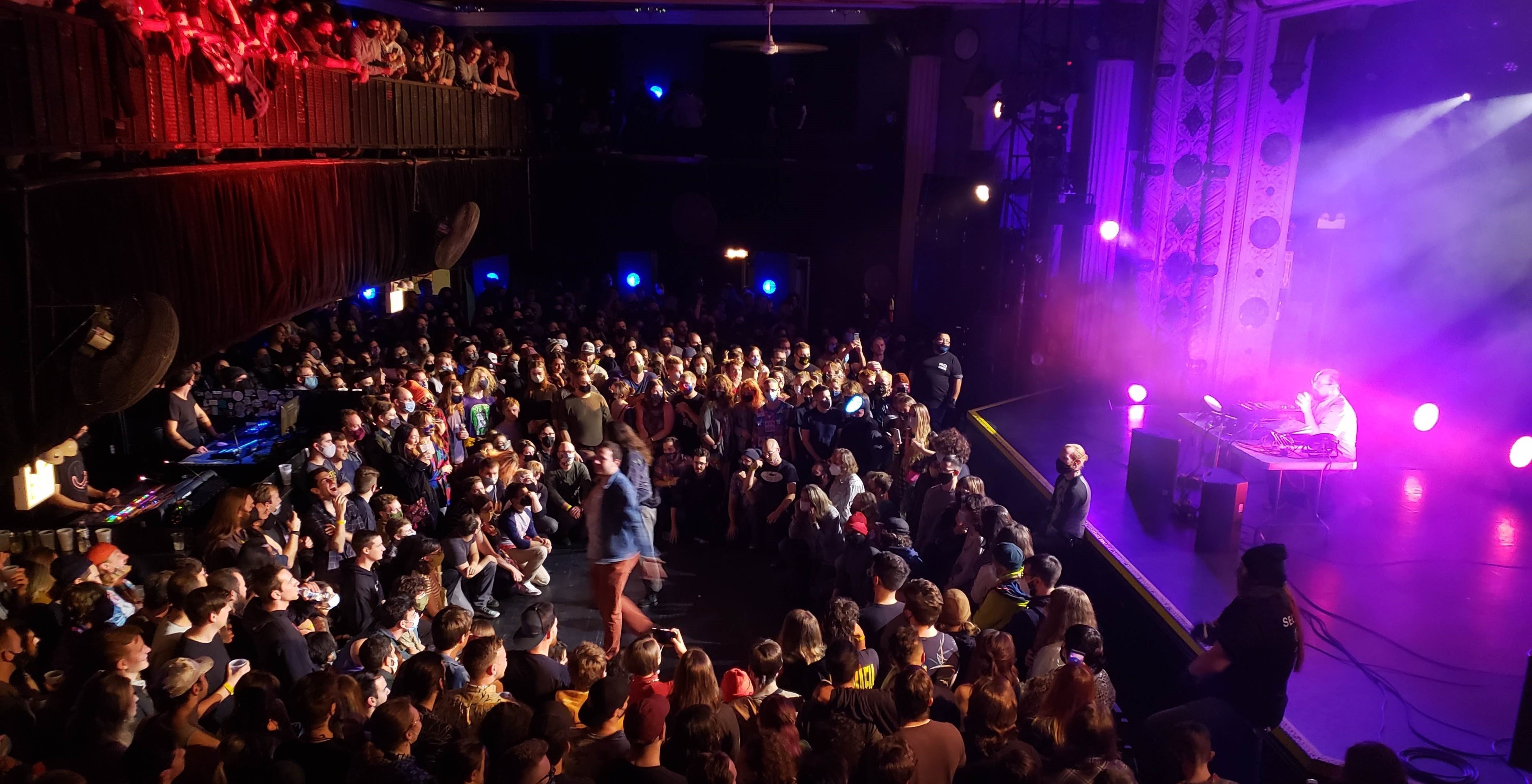
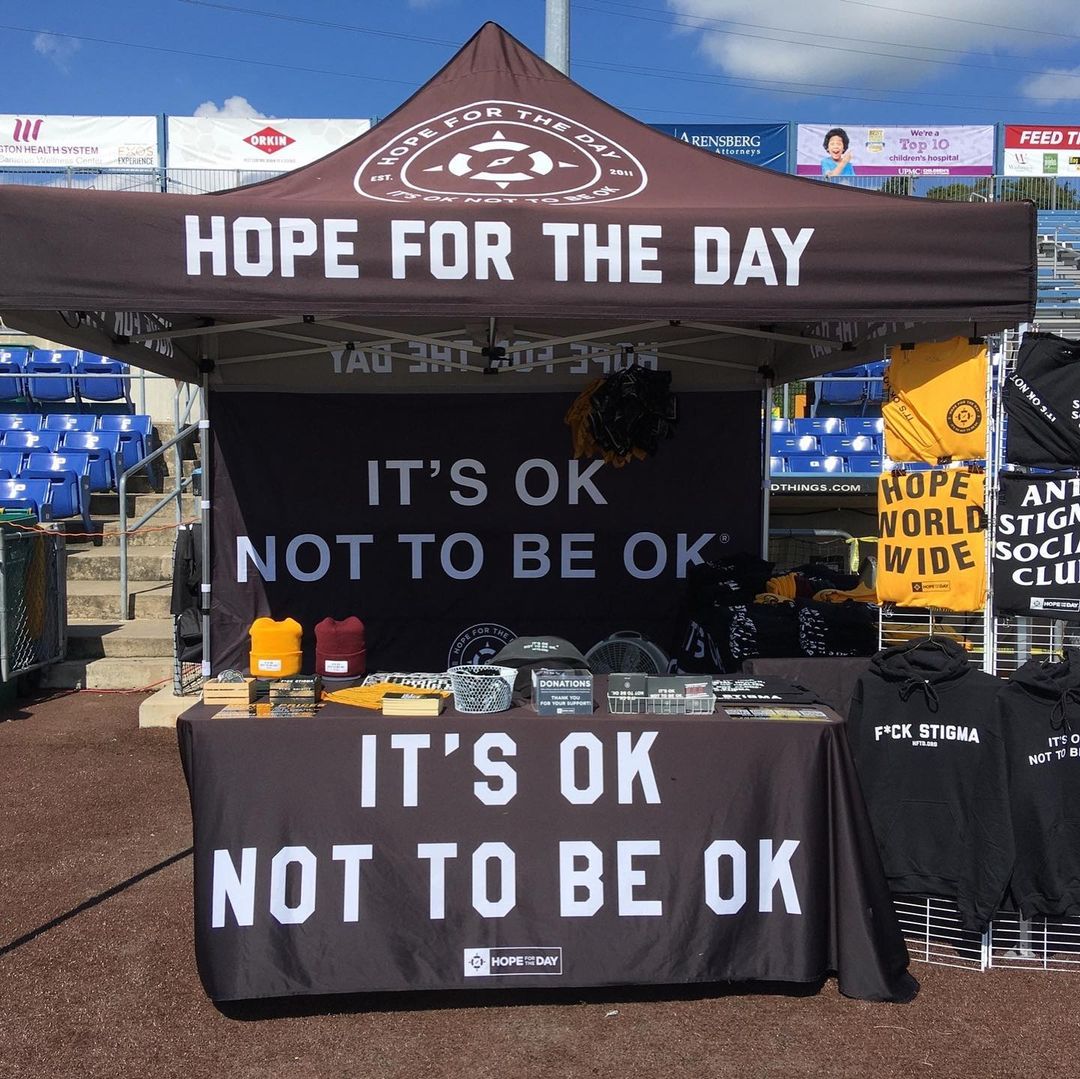
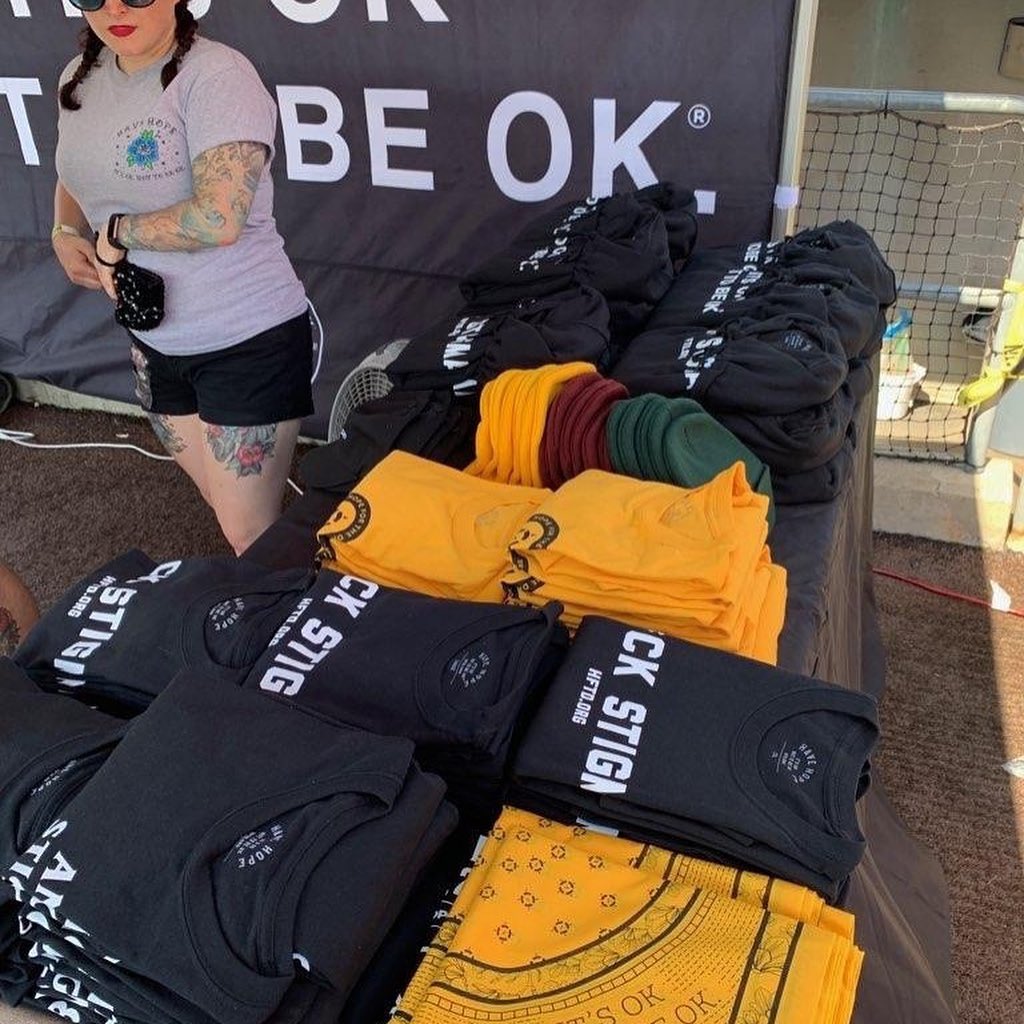
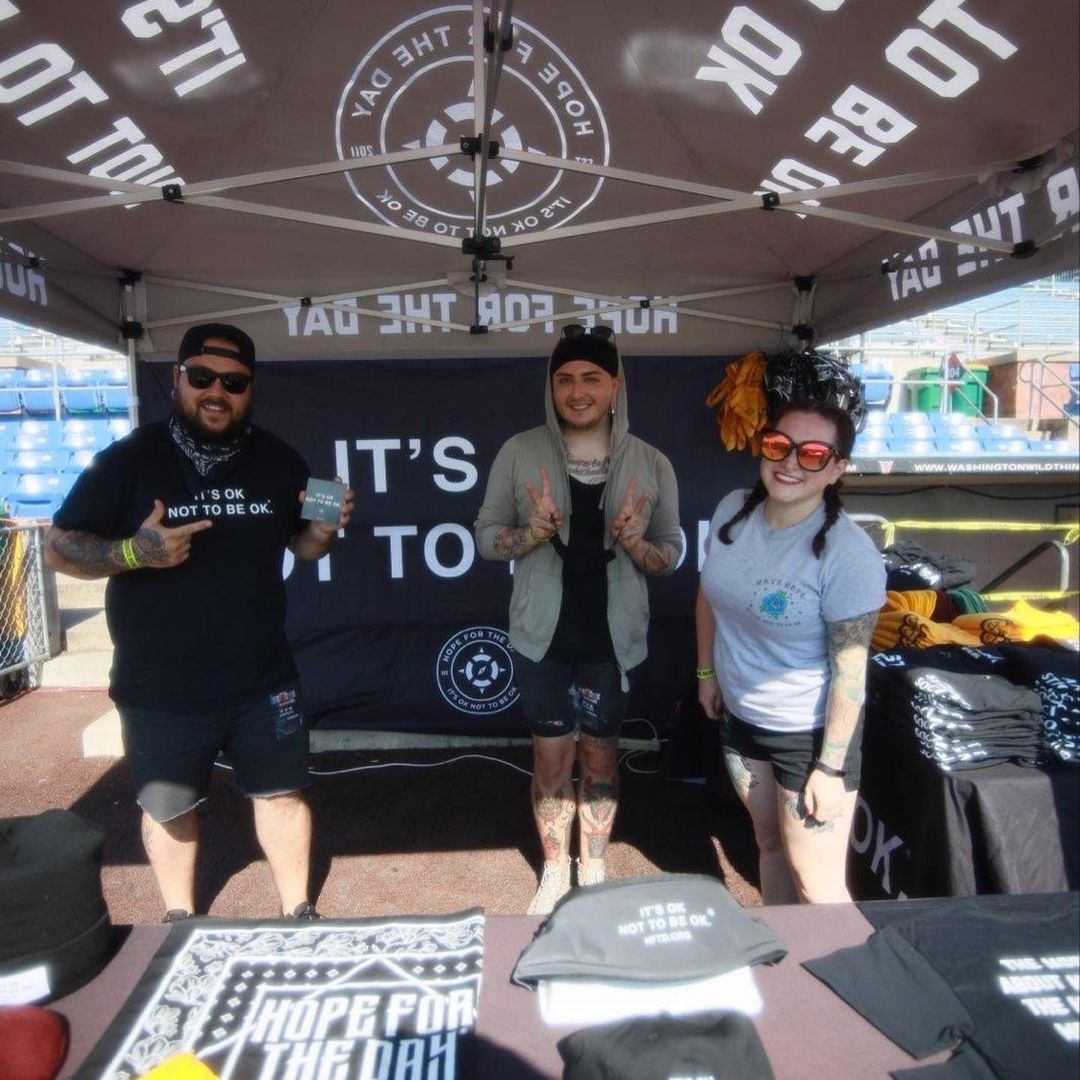

NO COMMENT